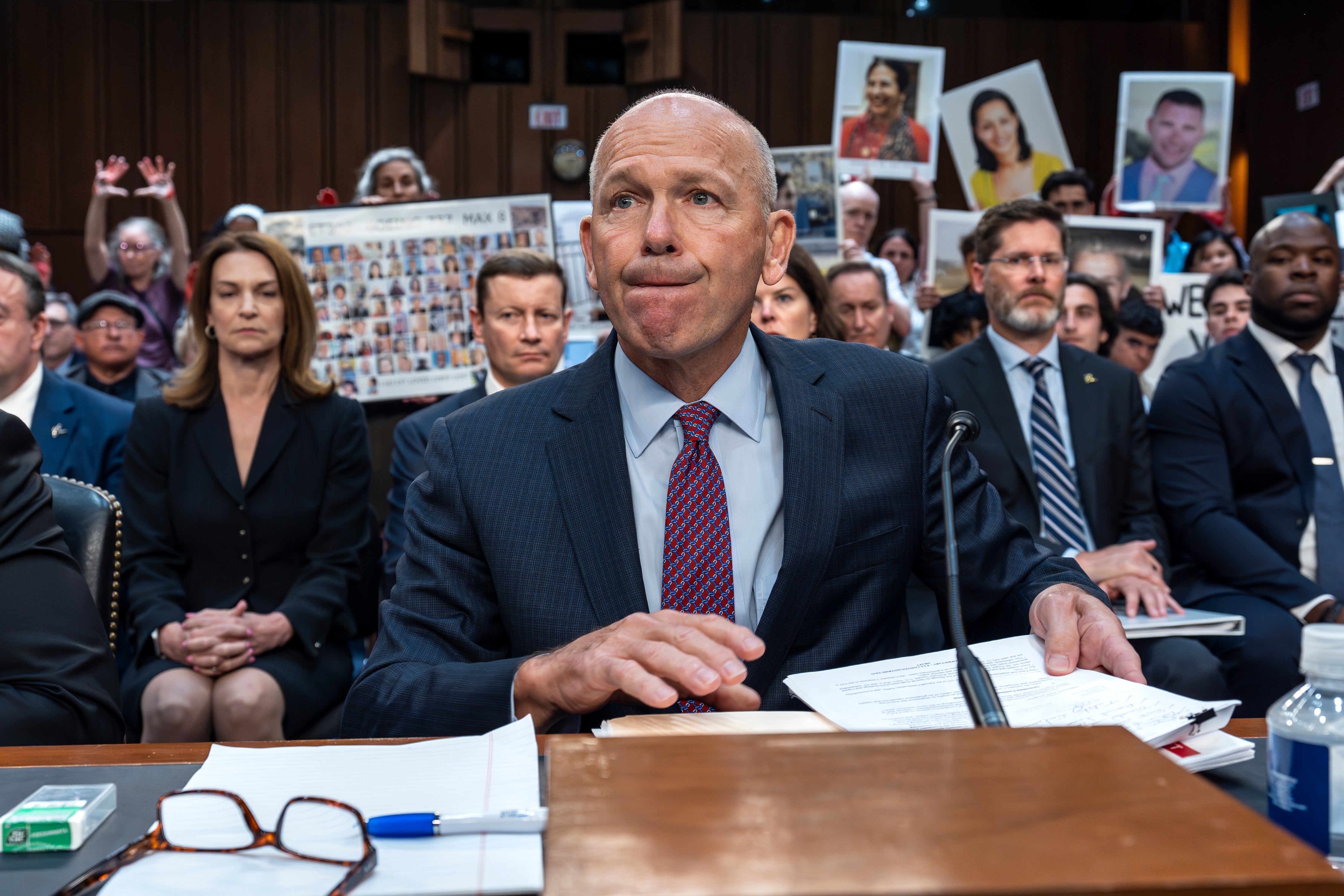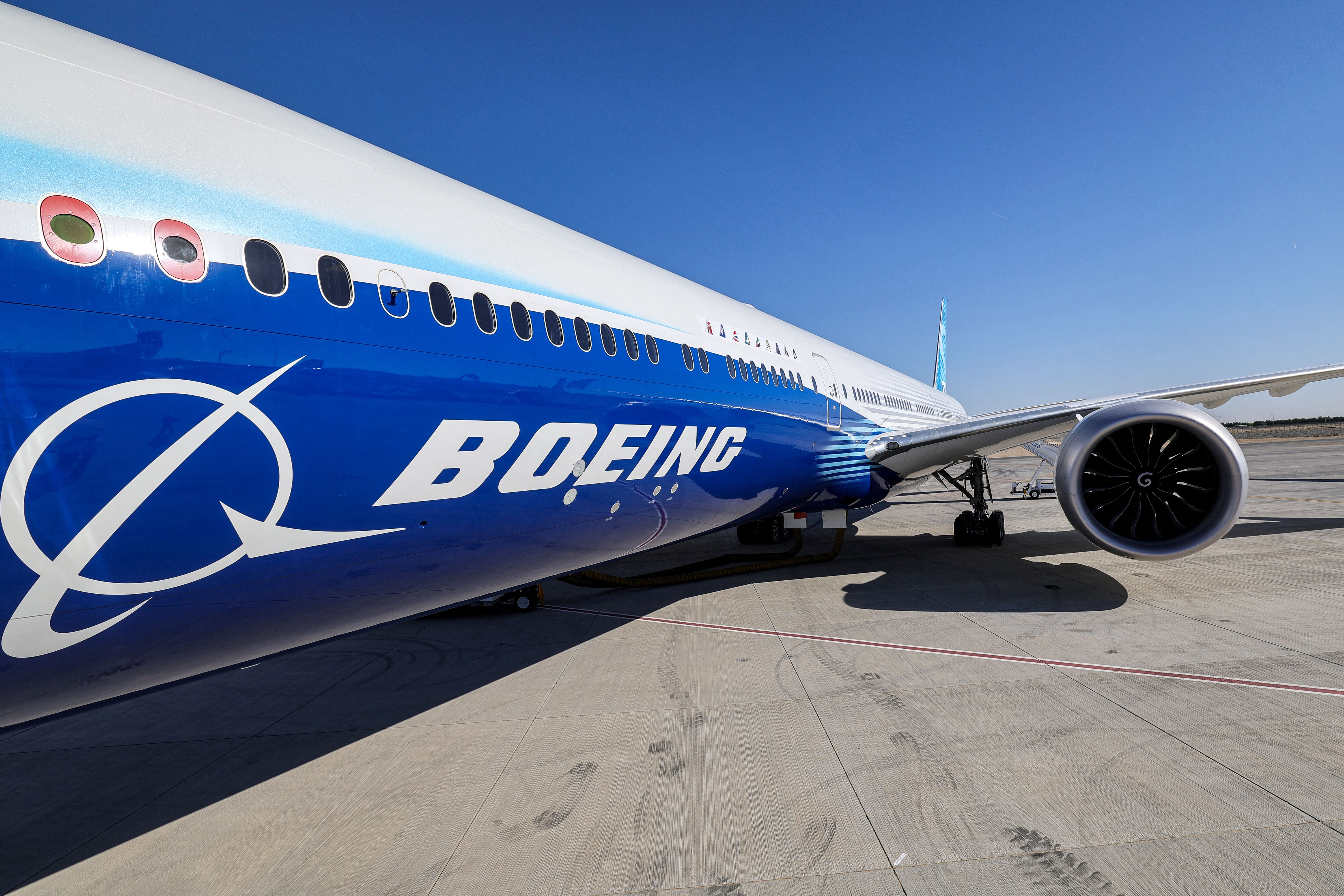DoJ prosecutors recommend Boeing face criminal charges, reports say

US prosecutors are recommending to the Justice Department that criminal charges should be brought against Boeing, according to reports, after allegedly finding the company violated a settlement relating to two fatal crashes.
The apparent recommendation for charges were first reported by Reuters, who cited two unidentified people familiar with the matter.
The decision is not final, however, as the Justice Department must decide whether to prosecute Boeing by July 7.
Officials allegedly found last month that the company breached the terms of a 2021 settlement..
Five years ago, Boeing agreed to pay $2.5bn as well as make improvements after two new 737 Max jets crashed in separate incidents, within the space of five months, one in Indonesia in 2018 and one in Ethiopia in 2019, killing a total of 346 people.
Boeing has disputed the DoJ’s findings, saying that the company has “honored the terms of the agreement” and looked “forward to the opportunity to respond to the Department on this issue.”
“As we do so, we will engage with the Department with the utmost transparency, as we have throughout the entire term of the agreement, including in response to their questions following the Alaska Airlines 1282 accident,” a spokesperson for Boeing told The Independent last month.

The two sides are reportedly currently in discussions over a potential resolution to the DoJ’s investigation, and there is currently no guarantee that the officials will move forward with the charges, Reuters’ two sources said.
Internal Justice Department deliberations are ongoing, and no final decisions have yet to be made, the sources added.
In 2018, 189 people were killed after a Lion Air flight from Indonesia plunged into the Java Sea just 13 minutes after take-off. Just five months after this horrific incident, an Ethiopian Airlines took off from Addis Ababa, when six minutes in, it crashed only 30 miles from the airport, killing all 157 people on board.
When investigations into the disaster crashes were underway, authorities pointed to a flight-control system that Boeing added to the Max without telling pilots or airlines, which Boeing did not overhaul until after the second crash.

After a series of negotiations, the government agreed not to prosecute Boeing on a charge of defrauding the United States by deceiving regulators about the flight system. The settlement included a $243.6 million fine, a $500 million fund for victim compensation, and nearly $1.8 billion to those airlines whose Max jets were grounded for nearly two years.
US officials claimed this year that Boeing had violated that deal, with DoJ lawyers writing in a letter to a federal judge that “for failing to fulfill completely the terms of and obligations under the [deferred prosecution agreement], Boeing is subject to prosecution by the United States for any federal criminal violation of which the United States has knowledge.”
Boeing has also been under intense scrutiny ever since a door panel blew off mid-air out of a 737 Max plane during an Alaska Airlines flight in January, along with a string of accusations made by whistleblowers over recent months regarding the company’s manufacturing process.
Boeing CEO David Calhoun appeared in front of a Homeland Security investigations subcommittee last week, where he was questioned on production inspection processes, and whistleblower safety as well as facing calls for his resignation.
During the hearing, the CEO apologized to the families of the crash victims, saying the embattled company was “totally committed” to future aircraft safety.
In March, Boeing CEO Dave Calhoun announced he would be resigning from his role at the end of the year following what he described as a “watershed moment” for the company after the Alaska Airlines incident.
Boeing declined to comment to Reuters. The Independent has contacted Boeing and the Justice Department for futher comment.





